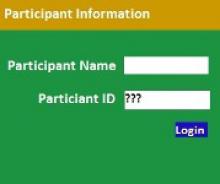 Hello! We are Stacy Johnson and Cami Connell from the Improve Group. At Evaluation 2013, we had the opportunity to present on our experiences using a unique mixed methods approach to collecting data.
Hello! We are Stacy Johnson and Cami Connell from the Improve Group. At Evaluation 2013, we had the opportunity to present on our experiences using a unique mixed methods approach to collecting data.
Good communication is a key tenant of Improve Group work and never is it more important than when working with populations who speak a different language than the evaluators. While we have a number of staff who speak multiple languages (basic to advanced skills include: English, Spanish, French, Malinké, Hebrew, Khmer/Cambodian, Hmong, Bambara and Wolof), a number of our projects have required additional language sets.
 The Improve Group has had enlightening experiences working across projects requiring multiple languages and leading us to use all manner of data collection – from one-on-one interviews, to focus groups, to our own Image Grouping participatory techniques. We’ve worked in a variety of contexts and regions, with a wide variety of participant groups.
The Improve Group has had enlightening experiences working across projects requiring multiple languages and leading us to use all manner of data collection – from one-on-one interviews, to focus groups, to our own Image Grouping participatory techniques. We’ve worked in a variety of contexts and regions, with a wide variety of participant groups.
 This morning, National Public Radio featured a piece on the upcoming results aspect of Charity Navigator’s rating system.
This morning, National Public Radio featured a piece on the upcoming results aspect of Charity Navigator’s rating system. Four years ago, the Statewide Health Improvement Program (SHIP) began granting funds to help communities in Minnesota with the goal of making healthy choices be the easy choices.
Four years ago, the Statewide Health Improvement Program (SHIP) began granting funds to help communities in Minnesota with the goal of making healthy choices be the easy choices.












